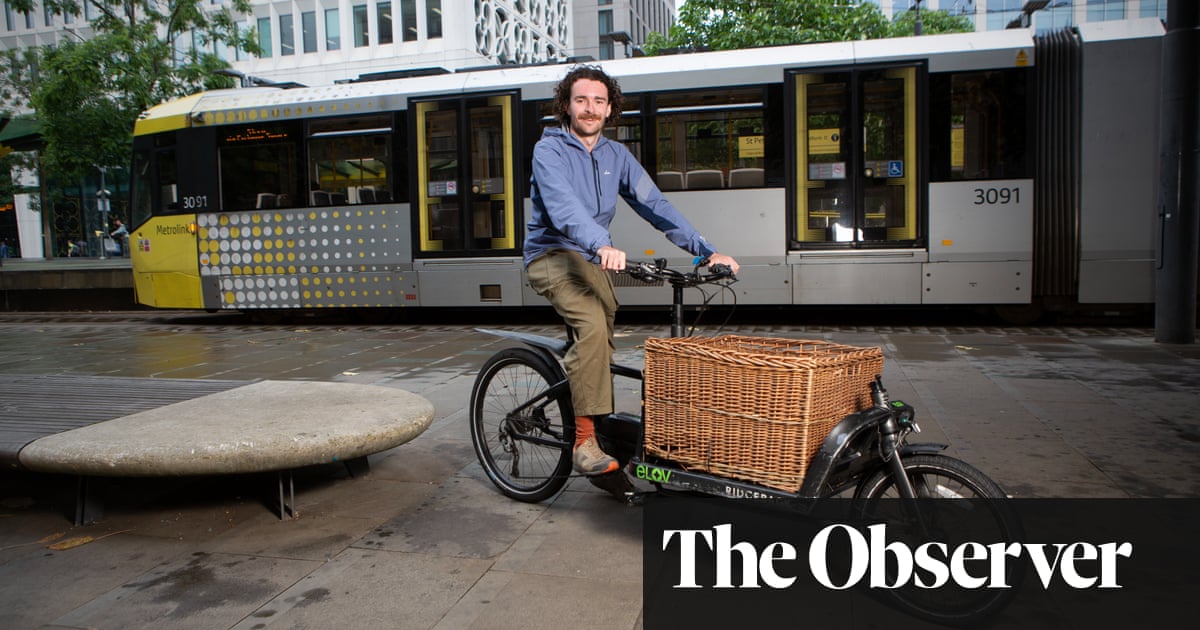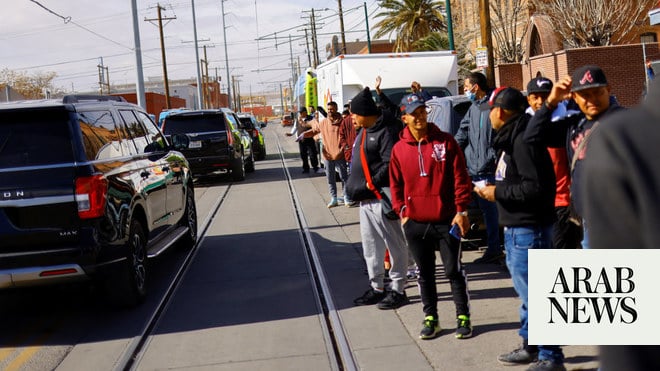
“I’d hoped we could take a Bee bike to Salford,” said Sarah Rowe of the Clean Cities Campaign after meeting the Observer at Piccadilly station in Manchester. “But look.”
Her app shows that none of the docks nearby has any bicycles, so we take a taxi. The driver gets £12 and the people of Manchester get 15 more minutes of exhaust fumes.
Such problems have led the Clean Cities Campaign to declare Manchester the worst city in Europe for clean and green transport. Of 42 cities, bottom-placed Greater Manchester is slightly behind Birmingham and Edinburgh, with Glasgow and Greater London at almost mid-table.
The report, Thank You For Sharing, published on Monday, charts progress towards decarbonisation by comparing the proportion of zero-emission buses, the number of shared electric vehicles and publicly available charging points, and how many shared e-scooters and bikes were available – measures that show how much a city is investing in zero emissions.
Greater Manchester fared badly because it has a negligible number of electric shared cars, 35 electric buses out of 2,141, relatively little charging infrastructure and only 0.7 bikes or scooters per 1,000 people.
Yet within the city-region, Salford, one of 50 areas in the UK where e-scooter schemes operate, is a comparative bright spot. Speed-limited scooters, operated and tracked by companies such as Lime, are legal to ride on Salford’s streets during the trial, but private e-scooters are not, despite being widely on sale.
Last month, Andy Burnham, the city-region’s mayor, launched the Bee Network – an attempt to join up tram, rail, bus and bike networks as with London’s Oyster card system. In the next two years, Mancunians should see improvements when 470 electric buses arrive and £25m is spent on electric vehicle charging points.
“Manchester has big potential when they bring in the Bee Network,” said campaigner Harry Gray of Walk Ride Greater Manchester. “But the fragmentation of the councils is a big problem.” Burnham needs the agreement of 10 council leaders, so progress has inched along.
And there are still problems, like the Bee bikes. Last week, Transport for Greater Manchester admitted that 564 out of the 1,000-strong fleet were out of action, blaming “wilful and malicious damage”. It accepted that public transport should be better, but said comparing Greater Manchester city-region to compact, smaller cities was unfair, and did not take into account the Metrolink tram system.
The Climate Change Committee said last week that government action was “worryingly slow” – 23% of all UK emissions come from surface transport, mostly cars, vans and HGVs, and their recommendation is to cut emissions by two-thirds before 2035. That means shifting to zero-emission vehicles, more public transport and active travel – mostly cycling and walking – and using vehicles more efficiently through car clubs.
The UK head of the Clean Cities Campaign, Oliver Lord, said: “The poor performance of UK cities in our ranking is partly down to the government’s much-delayed transport bill, which has stalled the rollout of e-scooters and is now clearly damaging the country’s longstanding reputation as a frontrunner in climate and new technology.”
The Department for Transport said its decarbonisation plan “sets out an ambitious and credible path to make way for a cleaner, greener future”, and that it had invested £2bn to help people switch to electric vehicles.
Although Copenhagen is top of the Clean Cities Campaign table – unsurprisingly for a city built around the bicycle and bus – Lord was surprised at how well some eastern European cities had performed.
Ljubljana in Slovenia and Sofia in Bulgaria both have flexible electric car-share schemes, and it’s much easier to park an electric car in both cities.
Marjeta Benčina, from the Slovenian campaign group Focus, said people commute by car from around Slovenia to the capital, creating huge congestion and air quality issues. The Avant car share scheme is very popular – there are 120 car stations and vehicles don’t need to be pre-booked or returned at a set time.
“Prices are rising but it’s still cheaper than owning your own car,” Benčina said. “You can borrow a car over the weekend for three days and it’s €100, and you have a free charging station.”
Sofia scored well because the municipal authority renewed its trolley bus network and has invested in new electric buses, and it also operates a car share scheme.
“Sofia is the motorist capital of the EU,” said Dragomira Raeva, of Za Zemiata, an environmental group. “There are about 0.8 cars per person – the whole city feels like a gigantic car park.” People using the Spark car share scheme can park anywhere. “In my estimation, about five years from now we’ll start talking about removing cars from the streets and moving towards shared mobility.”
Car sharing in the UK has become more popular since 2019, but last year saw a slight drop in scheme membership to 752,122, according to figures published on Sunday by CoMoUK, a charity promoting shared transport.
CoMoUK’s chief executive, Richard Dilks, said more people had joined car clubs in the pandemic and that the previous upward trend would return, but urged ministers to act on scooters.
“We are the only developed country with no legalisation for e-scooters and no plan for one, so we’re not just falling behind, we’re at the back of the line,” he said. “The trials have been successful – 34 million rides so far, with very few serious injuries. But it all hangs by a thread because it has no certain long-term future.”












